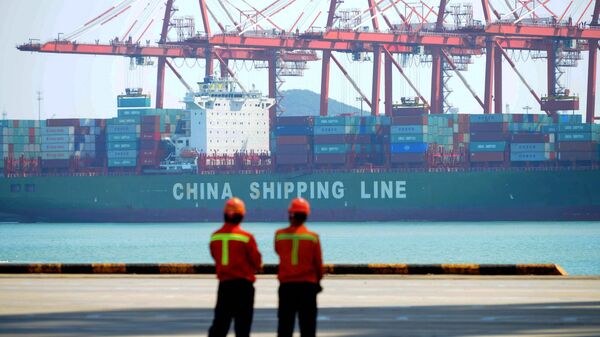As 2020 draws to a close, China will be the only major nation whose economy did not contract, registering a modest 2% growth. While China was the first nation to experience the COVID-19 outbreak that by March had become a global pandemic, the country’s quick and extensive lockdowns and supporting testing and quarantine measures helped the country to begin to resume some kind of business as usual by mid-year.
However, for 2021, Beijing expects a big boom. Fitch Ratings has predicted an 8% expansion of gross domestic product for the People’s Republic of China next year, helped by expectations that global vaccinations against COVID-19 will allow many nations currently under lockdown, including the United States and much of Western Europe, to relax restrictions in the coming months. According to CNBC, other estimates ranged from 9% by Nomura to 7.8% by Natixis.
A recent report by the Center for Economics and Business Research (CEBR), a British think tank, found the Chinese economy could overtake the US economy as the world’s largest by 2028.
At China’s State-owned Assets Supervision and Administration Commission (SASAC) annual conference on Friday, chairman Hao Peng urged the country’s SOEs, which have been key to the dramatic economic growth of the last 40 years, to take on new roles of leadership and coordination to push industrial expansion even higher.
“Central government SOEs must be the ‘national team’ that can provide solid support for economic and social development,” Hao said, according to the South China Morning Post (SCMP). “We must build a group of industrial champions, a group of technologically-innovative pioneers, a group of leaders in specialty fields, and a group of enterprises that can guarantee supply of basic [materials and goods].”
According to SASAC data viewed by the outlet, China’s 97 central SOEs are projected to reach $10.5 trillion in collective value - a 45% increase from just five years ago. Their average annual growth of revenues was 5.6%, and of profits, 8.9%.
In April, Chinese President Xi Jinping hailed the SOEs as the economic and political foundation of China’s socialist system, saying, “They must be built stronger, better and larger.”
By June, two months after the lockdown in former COVID-19 epicenter Wuhan ended, the Chinese Ministry of Finance had reported that SOEs had posted their first year-on-year growth of 2020, while a September report by the All-China Federation of Industry and Commerce (ACFIC) found that 96% of the country’s top 500 private corporations had been “walloped” by the pandemic, as SCMP put it, and 60.8% had been unable to fill customer orders due to supply chain disruptions.
Data on the January-June period posted by the National Bureau of Statistics in July reveals a good part of the reason why: China’s SOEs enjoyed 2.1% growth in fixed-asset investment, while private sector companies saw a disastrous 7.3% decline.
Nearly half of China’s 97 SOEs are on the list of the world’s top 500 companies, but even private corporations like Alibaba Group and Huawei are world leaders. The Chinese government has been careful to protect its industries from US attempts to limit or control them, as in the trade war and US government blacklists of recent years, including giving out tax write-offs and subsidies.
The US’ attacks on Chinese industries and the trade restrictions of the COVID-19 pandemic have helped motivate a new focus on self-sufficiency. Ahead of the drafting of the country’s 14th five-year plan in November, the Central Committee of the Communist Party of China urged a focus on “technological self-reliance.” Ning Jizhe, deputy head of the National Development and Reform Commission, noted this would act as a counterbalance to "protectionism and unilateralism" and an "imbalance of economic development” that threaten China’s economy from without.



